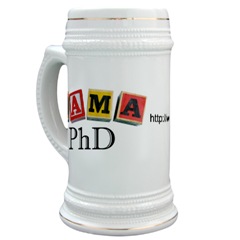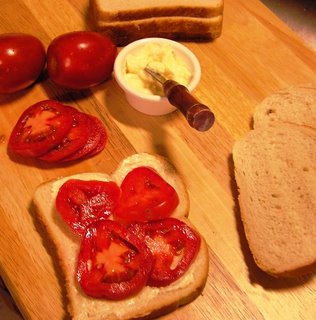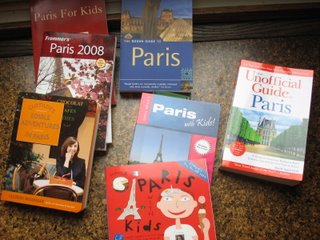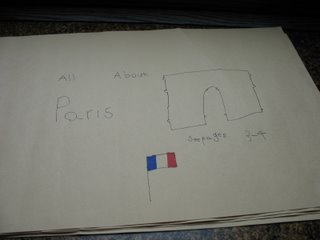Archive for June 2008
We have a winner!
But don’t let that stop you from posting a review on Amazon — there’ll be more great prizes coming later this summer.
Mama, PhD: The Giveaway

Did you hear about the Mama, PhD gear? We’ve got t-shirts, of course, and hats and bags, but did you also know we have the all-important license plate holders and beer steins at our Cafe Press shop? Sure, why not?
So as long as we’re making all this stuff, I’ll be giving some away to faithful readers every once in a while. Today, I’ve got one men’s large Mama, PhD t-shirt for the first person to post a brief review of the book on our Amazon page. And by brief, I do mean brief; if all you have in you is “Nice cover!” then I’ll be satisfied with that. I’m just looking for a little action over there. Post your blurb, send me the link, and you get a cozy t-shirt, good for a nightshirt, beach cover up, or a gift to the Mama, PhD-supporting man in your life.
And next month, maybe I’ll give away a stein!
First Tomato (Sandwich)

Libby’s recent column over at Literary Mama brought me back to one of my favorite series, the Bunny Planet books by Rosemary Wells. In each one, a bunny is having a pretty lousy day until the Bunny Queen, Janet, whisks the animal off to the Bunny Planet for “the day that should have been.”
I’ve always identified most with the hapless Claire, who doesn’t get a good breakfast and whose shoes fill with snow on the way to school; she has to sit through two hours of math at school (no matter how long the math lesson was, it always felt like two hours to me), is served baloney sandwiches for lunch, and then is the only girl in her gym class who can’t do a cartwheel: this sounds like any number of bad days in my childhood!
Luckily, in the Bunny Planet, it’s summer and Claire is home, where she can pick vegetables from her garden and then hang out in the kitchen watching her mother cook — this, in turn, sounds like any number of good days from my childhood.
Claire’s mother makes her soup from the summer’s first tomato, but I think my mother would agree that the best thing to do with the very first tomato is a sandwich, and that’s what I made today: just one sliced tomato, on toast, with some mayonnaise, salt and pepper. Yum.
I ate mine too fast to take a picture; this image is from Out of the Garden
Mama, PhD: The Movie
Yes, it’s true, the book’s been out a couple weeks now (though we’re not yet at our official publication date), the blog’s been going for a couple of months, and even the store is doing some brisk business in Mama, PhD gear. Clearly it was time for the next step (clearly Elrena either had a pressing deadline, or had just a bit of time on her hands!):
[youtube=http://www.youtube.com/watch?v=xvXfJqtROjo]
Review: Between O and V (poems)

One of the unexpected pleasures of moving up the masthead to Senior Editor of Literary Mama has been getting to correspond with all the other department editors about pieces they’re considering for publication. It’s been particularly enlightening for me to work with our poetry editor, Sharon Kraus, since my formal poetry education is limited–aside from the odd 2-week unit on poetry in one class or another–to one college seminar on Walt Whitman and Emily Dickinson, plus reading my dad’s work. I still remember how he responded when I wrote him about an English class in which we were studying e.e. cummings: he wrote me a sonnet about how he would teach poetry!
So when Maria Scala, one of Literary Mama’s columns editors, said she was interested in exchanging reviews of recent publications, I jumped at the chance, though I had to warn her — and now caution you readers –that I can’t write very knowledgeably about the form. I respond to what I like, pause to admire unexpectedly effective word choices, remember images that resonate with me. I read her chapbook, Between O and V, straight through over lunch the other day, which is not at all how one should read poetry, I think, but speaks to the appeal of Maria’s writing. Reading these poems felt rather like sitting down with a beautiful bowl of ripe cherries, not wanting to stop consuming them till they were gone, and then sitting still, satisfied, for a time at the end.
There’s a mood of concern in some of these pieces, a sense of worry about the future, which speaks to me (I’m the one who’s got a fortune which reads “You are worrying about something that is not going to happen” taped to her laptop, remember?). “I’m not long for this world / if I don’t have you” goes one stanza; or in a poem titled “Nonna,” in which a mother tries to busy herself away from thoughts of grief, “I fear for the day / when I have to make myself / forget this way.” Deep sigh.
The perspective in these pieces feels familiar to me; it’s a voice old enough to see her parents clearly, as people apart from being parents, and now starting to reconsider some of the impressions and ideas of her childhood. These are moving poems about relationships and writing, particularly interested in family, but there’s a light touch to them, in pieces like “House Rules,” which begins simply “Stick together.” Or the sweetly funny “Now I Am Married,” in which the narrator, her husband away on business, “awakens[s] in the middle of the night / cold and surprised / heartbroken too: / remembering how good it is / to accidentally elbow you in the head / so that I can kiss it better.” I loved “My Friend Is Left-Handed,” which made me laugh, in the context of these carefully-observed pieces, with its opening line: “After all this time, / I never noticed.”
But my favorite is perhaps “My Literary Uncle,” which ends, “I pare down each experience / hoping to leave / a lovely mess of shavings / behind.” This collection is a lovely mess of shavings indeed, and then some.
Student/Mom
The blog tour is over, but I have to return to The Maternal Is Political for a moment here to mention one more essay which I read and thought, “Shoot! that should have been in Mama, PhD!” But on reflection, I’m really glad it’s in this book instead, because I want people getting this message everywhere: it’s important to think about the challenges facing student parents (not to mention faculty parents, and school administration parents, and school staff parents…). Don’t we want higher education to accommodate parents, so that it can better accommodate our kids as future students? Clearly this isn’t related for everybody in academic administration these days, but it should be.
So here’s a passage from “Shown the Ropes,” by J. Anderson Coats:
It’s graduation day at Bryn Mawr College. Today I’m at the top. My hands are cut up from the climb. The kid on my back got ten times as heavy and took way fewer naps. I wrote my senior research thesis while taking two writing-intensive history classes, toilet training the kid, and buying my first house.
But up I went, because I knew exactly how far down I could go.
I don’t leave here with a Fortune 500 gig or a slot at Harvard Law. I don’t leave with a dormful of friends or a shoebox of photographs from May Day.
I leave whole.
I leave enmeshed in a prestigious, uncompromising community that rolled the dice on an underage autodidact with more secrets than pedigree, a community I’m proud to claim as my own because it offered the rope without condition, without favor, without slack. A community that gave me the chance to fly and let it be my own.
Tomorrow will be another climb, and I’ll have to shoulder my way into grad school or a nine-to-five. I’ll have to want it twice as bad and work twice as hard.
But this too is what I leave with: an overarching sense of the possible.
Today I’m at the top, and the view from the clouds is something else.
Pick up The Maternal Is Political to read the rest. And if you want to do something concrete to ease the way for one student mom, here’s someone who’s trying to take on the challenge and could use a little help.
Milestones
This was a big week for the Grant family, as both boys began new summer programs.
Ben’s attending a language immersion program at the local French-American school in preparation for our trip next month, the first time he’s gone to any kind of class without a parent, or any other kid he knew, or without even visiting the building ahead of time. Typically, he was more concerned about his lunch options than about the whole communication in a foreign language aspect (hmm, I wonder where he gets this from?!) But Tony took him the first day, and Ben quickly found the Lego, so the communication issue was rendered moot: the language of Lego is universal.
Meanwhile, Eli began preschool! After a year away, we’re back at our beloved, rough and tumble co-op, a school recently described in a local paper as the “best educational experience in the Bay Area” (hear that, Stanford?) I took him in and stayed for my work day; later he reported to Tony that he was “half wif Mama, half no Mama.” Today, he did the morning all by himself, and reported to me afterwards, to explain his lack of socks, “Mama, some kids throwed water… and… never mind.” Good boy: handled the water play and isn’t a tattle-tale.
Tony and I are giddy: for the first time in 6 years, 3 months, and 12 days of parenting, we have twelve hours a week of scheduled, reliable childcare.
A Review!
Mama, PhD is getting out into the world now, making its way to readers and reviewers. Today, we spotted this review on Activistas, by the wonderful Bob Drago (whom we considered wonderful, for the work he does on academics and family life, even before he wrote this review). Here’s an excerpt:
This is easily the most important piece of work to date on academics and family issues, full-stop, because the editors draw out from the authors all of the messiness, the highs and lows, the fears and hopes, the pride, guilt, anger, love and sense of failure and accomplishment and mainly great stories that comprise life for so many moms who try to make it as academics. The panopoly of supportive or unkind department chairs and colleagues, high and low status schools, childcare arrangements that work or don’t work, supportive or non-existent partners, and perfect and not-so-perfect children is all here.
You can click on over to Activistas to read the rest!
cross-posted from Mama, PhD
MotherTalk Blog Tour: The Maternal Is Political

Saturday started like any other day. Eli came thumping down the hall at first light and climbed into bed with his patch blanket and blue bear for a wriggly cuddle. “Is it a school day?” he asked after a bit. “No, sweetie, it’s not,” I answered. “That means I can watch a show!” he crowed. So he jumped and I hauled myself out of bed and downstairs we went, where he settled on to the couch with his “show snack” of dry cereal and a sippy cup of milk. I turned on the TV, ready to read him the titles of the 26 episodes of Oswald we’ve recorded for him to choose from for his weekend morning’s entertainment.
But before I could get to the Tivo screen, there was Hillary Clinton, bowing out of the race for president, and I sat back down on the couch, momentarily deflated.
“Mama?” Eli asked after a moment, puzzled that his beloved blue octopus wasn’t yet on screen. “Mama, please tell me the choices?”
“Just a minute, sweetheart; I want to watch this. This is very important.”
Soon Ben and Tony were downstairs, too, and we all watched the speech: Eli, bored and impatient, Tony providing running commentary to Ben (who’s been an easy Obama supporter ever since his kindergarten teacher put a campaign sign on the classroom door), and me with surprised tears in my eyes. Because despite my ambivalence about Clinton as a candidate, I found myself profoundly sad to see her candidacy end. Her candidacy – despite the terribly sexist coverage it attracted – put an end, finally, to the question of whether, as Gail Collins put it, “it’s possible for a woman to go toe-to-toe with the toughest male candidate in a race for president of the United States. Or whether a woman could be strong enough to serve as commander in chief.” Her candidacy made it clear that a women, indeed a mother, could govern the United States, and it inspired me.
Happily, I have plenty left to be inspired by. I can support an exciting candidate for president, and I can dive into lots of terrific reading in the wonderfully timely and engaging The Maternal Is Political. Now, I should admit that I am a completely subjective reader: many of the contributions in this anthology are by excellent writers whom I consider friends, women I know from my work at Literary Mama. And the book is edited by my fabulous partner in the work of managing the site, Shari MacDonald Strong. But, despite my subjectivity, I’m still a very critical reader; I’ve probably read over a dozen anthologies in the last year alone, and having now edited one myself, I’ve formed strong opinions on aspects ranging from cover design to essay length to a book’s organization.
You can all judge for yourselves what a great cover The Maternal Is Political has; the book gets other little things right, too. It offers reader-friendly sections, titled Believe, Teach and Act – words that move me, that get me thinking about the ways that I believe, teach and act just by reading them. It offers a reader-friendly variety of essay length and tone, from the 2 ½ page day-in-the-life account from Benazir Bhutto (reading how competently she moved through a day of governing and mothering made me mourn her all over again) or Cindy Sheehan’s sharp critique of the progressive left in “Good Riddance, Attention Whore,” to the more leisured reflection of Shari MacDonald Strong’s thoughtful “Raising Small Boys in a Time of War” or Barbara Kingsolver’s funny, smart “A Letter to My Daughter at Thirteen.”
And with all this writing, The Maternal Is Political gets the big thing right, too. It’s great writing, cover to cover. It’s all here–gender politics, sexual politics, school politics, adoption politics, religious politics, body politics, community politics, family politics, social politics—but with a mix of tone and approach that makes the book a real pleasure to read. Rather than weighing you down with the utter importance of it all, these writers make you want to think critically, get up off the couch, make a phone call, sign a petition. Do good in the world, and teach your children how to do good, also.
And that part’s not so hard, really. These essays remind us that our children are our constant witnesses, and so why not take subtle advantage of that while they’re young, as in Gayle Brandeis’ “Trying Out,” or in Jennifer Graf Groneberg’s quietly forceful “Politics of the Heart,” which relates moving through a regular day with her three children while following the news of a state assembly bill that would affect her ability to home school them:
At noon, another email update from MCHE arrived, explaining that the crowd had moved to the Capitol. I fed Carter a grilled cheese sandwich, and I fed the babies pears and green beans and bits of Ritz crackers in their high chairs, thinking about how flimsy my position felt—I was fighting for the right to educate my son, but I had nothing to go on but a mother’s intuition, a mother’s love.
In some of the essays, the children taught are sometimes older, and sometimes not the writer’s own. Amy L. Jenkins, in “One Hundred and Twenty-Five Miles,” describes how she took advantage of the confined space of a road trip to work on a young man’s views of gender roles. In Gigi Rosenberg’s “Signora,” she speaks up, in halting Italian, to break up a charged moment on a bus, and Anne Lamott wonders briefly if she’s gone too far, but is then reassured: “During the reception, an old woman came up to me and said, “If you hadn’t spoken out, I would have spit,” and then raised her fist in the power salute. We huddled for a while and ate M&Ms; to give us strength. It was a communion for those of us who continue to believe that civil rights and equality, and even common sense, may somehow be sovereign one day.”
All of these women write about families, but I was especially moved by stories of creating families, or asserting them in the face of challenges. I teared up at the end of Kathy Briccetti’s wonderfully rich detailing of her family’s complicated adoption history, which culminates in one of California’s first second-parent adoptions. And Ona Gritz, who writes a gorgeous monthly column for Literary Mama, writes matter-of-factly about the casual discrimination she faces every day:
Here is what I want to believe. That Lois didn’t think blond, blue-eyed Ethan and I were related because of my dark hair and eyes. Or that I look too young to be the mother of a two-year-old (even though I’m thirty-six). But there is another, more likely explanation, and I can feel myself squelch it down. To Lois’s mind, a disabled woman can’t be a mother. The disable are dependent and asexual. They are like children themselves.
I cannot stop thinking about the striking image of street children in Violeta Garcia-Mendoza’s poetic yet also clear-eyed account of a trip to Guatemala to adopt her first child:
I don’t expect the street children to whisper. I don’t expect them to approach us like they do, bumping against each other somnolently, like fish. Opening and closing their hands instead of their mouths. Some of them hold hands with a smaller
sibling, tethering themselves together to make sure they don’t get separated in the crowd. They try out a handful of English words on us—”hello,” “please”—before they learn I speak Spanish. Then they ask for money for milk, for medicine. Their skin is dull, inflamed in places, their lips chapped, hair tangled and matted; their feet are bare. They don’t swarm but quietly press against us with their soft por favores and gracias.
And finally, I come back again and again to the strong and simple words of Shari MacDonald Strong’s introduction: “…If my life as a mother of three children has taught me one thing, it’s that there is no more powerful act than mothering. There is no greater reason than my children for me to become politically involved, and there is no more important work to put my efforts to than those things that will make this world a better, safer place for my kids.” “Vote Mother,” Shari writes; indeed. Share this with the mothers you know, and their partners, friends, and children, and remind them: it’s time to get political.
For more reviews, plus an interview with Shari MacDonald Strong, check out MotherTalk this week.








